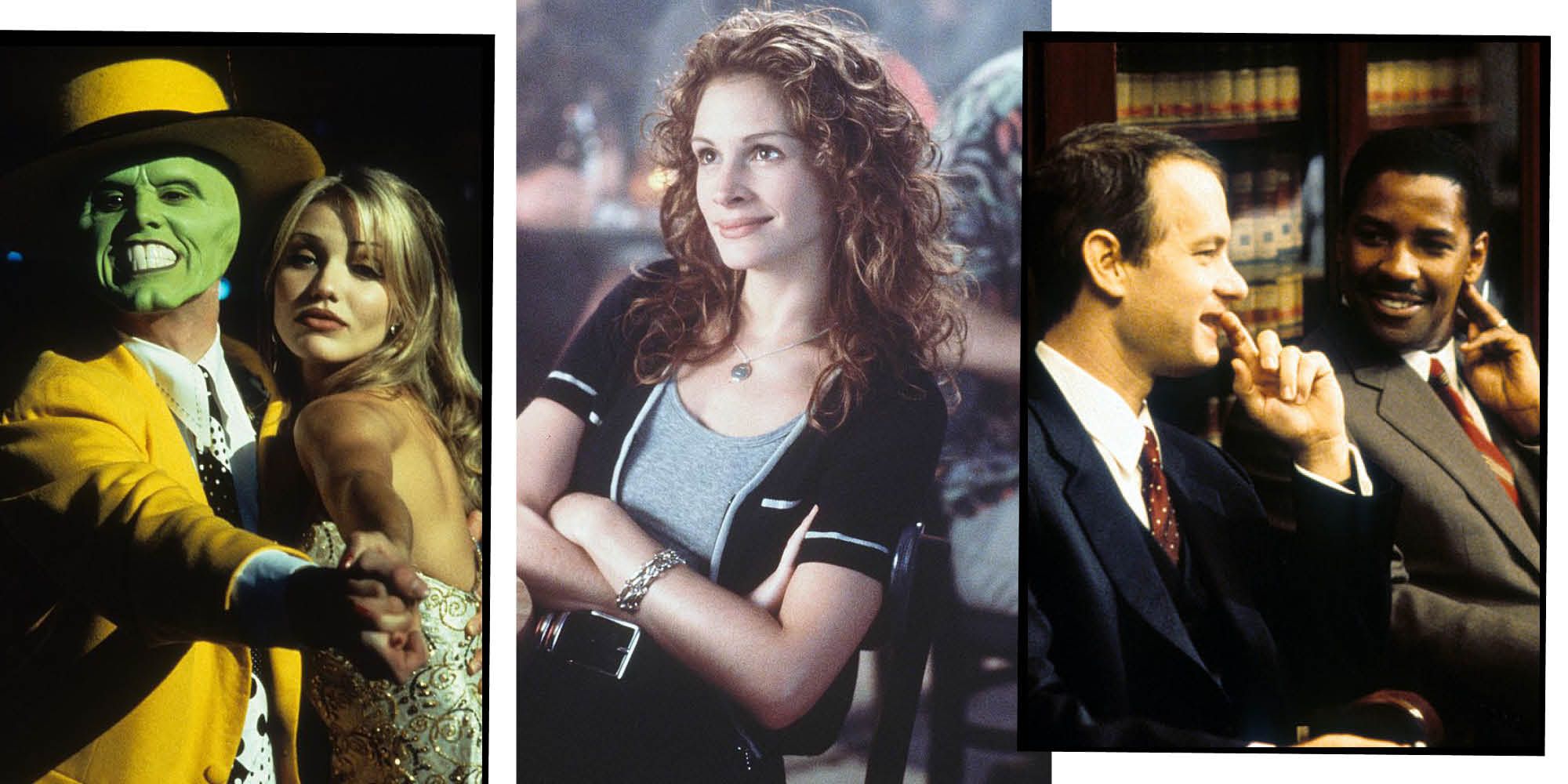A Decade Defined by Cinematic Brilliance
The 1990s stands as a pivotal epoch in the annals of cinema, where artistic innovation collided with technological advancement to produce an eclectic tapestry of films that continue to captivate audiences to this day. As we embark on a journey through this cinematic time capsule, let us delve into the realms of imagination, nostalgia, and cultural significance encapsulated by some of the finest movies of the era.

Resonating Narratives: Iconic Films of the 90s
1. Pulp Fiction (1994)
Quentin Tarantino’s magnum opus, “Pulp Fiction,” redefined the crime genre with its nonlinear narrative, razor-sharp dialogue, and kaleidoscopic characters. From the enigmatic hitmen Vincent Vega and Jules Winnfield to the captivating Mia Wallace, each persona is etched with meticulous detail, breathing life into a world where violence intertwines with dark humor.
2. The Shawshank Redemption (1994)
Adapted from Stephen King’s novella, Frank Darabont’s “The Shawshank Redemption” is a poignant tale of hope and redemption set within the confines of a prison. Through the indomitable spirit of Andy Dufresne and the unlikely friendship forged with Ellis “Red” Redding, the film explores themes of resilience, friendship, and the enduring power of the human spirit.
3. Schindler’s List (1993)
Steven Spielberg’s magnum opus, “Schindler’s List,” serves as a haunting reminder of the atrocities of the Holocaust while celebrating the indomitable courage of individuals in the face of unspeakable evil. Shot in stark black-and-white, the film chronicles the true story of Oskar Schindler, a German businessman who saved the lives of over a thousand Jewish refugees during World War II.
4. The Matrix (1999)
A paradigm-shifting blend of science fiction, martial arts, and philosophical inquiry, “The Matrix” revolutionized visual effects and storytelling conventions. Directed by the Wachowski siblings, the film follows Neo, a computer programmer who discovers the illusory nature of reality and joins a rebellion against sentient machines that control humanity.
5. Forrest Gump (1994)
Robert Zemeckis’ “Forrest Gump” weaves a tapestry of Americana through the remarkable journey of its titular character, played with endearing sincerity by Tom Hanks. From his childhood struggles with leg braces to his unwitting involvement in key historical events, Forrest’s odyssey is a testament to the power of innocence, perseverance, and love.
Diverse Expressions of Artistry: Genre-defying Films
1. Jurassic Park (1993)
Steven Spielberg’s groundbreaking sci-fi epic, “Jurassic Park,” brought dinosaurs to life with unprecedented realism through pioneering CGI technology. Beyond its technical achievements, the film remains a thrilling adventure that explores the ethical implications of genetic engineering and humanity’s hubris in the face of nature’s primal forces.
2. Fight Club (1999)
David Fincher’s subversive masterpiece, “Fight Club,” subverts societal norms and consumer culture through its anarchic narrative and nihilistic philosophy. Anchored by powerhouse performances from Brad Pitt and Edward Norton, the film delves into the psyche of disenfranchised men who seek liberation through violence and existential rebellion.
3. The Silence of the Lambs (1991)
Jonathan Demme’s psychological thriller, “The Silence of the Lambs,” captivates audiences with its spine-tingling atmosphere and unforgettable performances from Jodie Foster and Anthony Hopkins. As FBI trainee Clarice Starling seeks the insights of incarcerated cannibalistic serial killer Hannibal Lecter to apprehend another murderer, the film explores the thin line between hunter and prey.
4. The Usual Suspects (1995)
Bryan Singer’s neo-noir mystery, “The Usual Suspects,” keeps viewers on the edge of their seats with its labyrinthine plot and a jaw-dropping twist that remains one of cinema’s most iconic moments. Through unreliable narration and a cast of enigmatic characters, the film blurs the lines between truth and deception, leaving audiences questioning their perceptions until the final frame.
5. Trainspotting (1996)
Danny Boyle’s visceral exploration of addiction and disillusionment, “Trainspotting,” immerses viewers in the gritty underbelly of Edinburgh’s drug culture with unflinching honesty and dark humor. Led by Ewan McGregor’s electrifying performance as Renton, the film confronts the harsh realities of addiction while offering a glimmer of redemption amidst the chaos.
Conclusion: A Tapestry of Timeless Masterpieces
The 1990s heralded a golden age of cinema, where visionary directors pushed the boundaries of storytelling and technology to craft enduring works of art that continue to resonate with audiences across generations. From the gritty streets of Los Angeles to the fantastical realms of virtual reality, each film serves as a testament to the boundless creativity and cultural impact of the cinematic medium. As we celebrate these timeless masterpieces, let us cherish the memories they evoke and the emotions they stir, reaffirming their status as indelible icons of cinematic excellence.